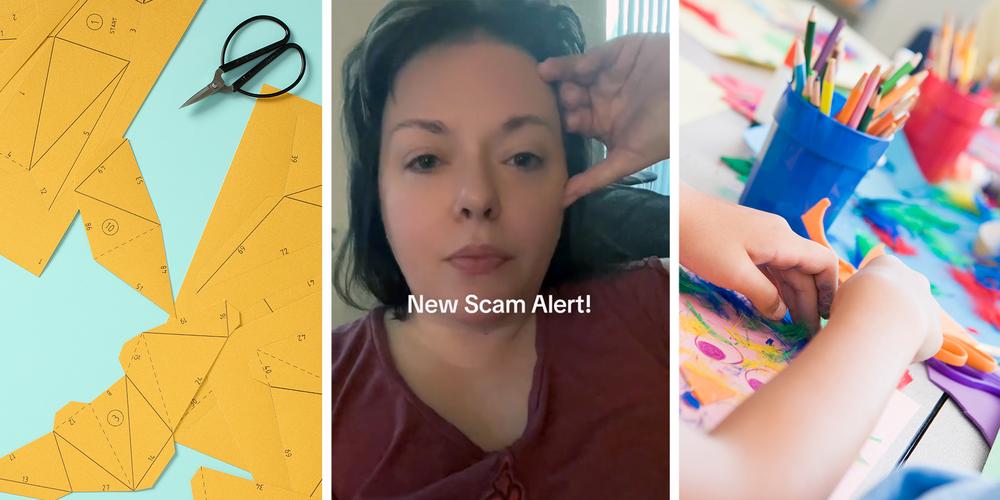Online scams are constantly evolving, often preying on people’s trust to get personal information.
Featured VideoFrom fake job offers to social media “brand deals,” they can look convincing at first glance. Now, one woman on TikTok says she almost fell for one that was brand new to her.
“She said it was for an art project“
TikTok user Jen (@jen961) shared her experience in a recent video, explaining how the scam unfolded.
AdvertisementShe says it started when someone messaged her, asking if they could use her profile picture for an art project.
Curious, she checked the sender’s page, which was filled with paintings and drawings, and decided it looked legit.
Jen replied, asking which photo they wanted to use. When the person confirmed it was her profile picture, she agreed.
That’s when the conversation took a turn.
Advertisement@jend961 Heads up! New scam trending!#fyp #scam #art ♬ original sound – jend961
“They thanked me and said once the project was done, I’d get a copy and a commission,” Jen explained. “Then they asked for my full name and email so their client could send me an e-check. They said they didn’t need my bank information—just my name and email.”
That was the red flag. Jen says she immediately told the person she knew it was a scam. Not long after, their profile disappeared.
But it didn’t stop there. “Today I got two more messages from different people asking the same thing,” she said. “So heads up, guys. Be careful.”
AdvertisementA well-known scheme
According to the Federal Trade Commission, this type of scam—often involving fake checks—is nothing new.
The FTC explains how it typically works: scammers convince you to provide personal information and agree to accept payment, often by e‑check.
Then, they either ask you to send some of that money back or claim the payment is for a commission. But by the time your bank flags the check as fake, the scammers already have your money or your information (FTC).
AdvertisementThey advise not sending money back to anyone who pays you with a check — legitimate buyers don’t overpay and ask for a refund.
They also recommend avoiding sharing personal information like your email and full name with strangers online, since this can open the door to phishing attempts and future scams.
If you do receive one of these messages, the FTC says you should report it at ReportFraud.ftc.gov and contact your bank immediately if any money or personal data was shared.
In the comments, many viewers said they’ve seen this scam before.
Advertisement“This been going on for YEARS!” one person wrote.
Another said, “Yes, I’ve received a couple of those myself.”
A third added, “lol I went through the exact same thing. These ppl are relentless.”
The Daily Dot has reached out to Jen for additional information.
AdvertisementThe internet is chaotic—but we’ll break it down for you in one daily email. Sign up for the Daily Dot’s newsletter here to get the best (and worst) of the internet straight into your inbox.

 'We assessed your attempt,' — top Ukrainian drone commander hints Russia tried to strike multiple unit leaders at once
'We assessed your attempt,' — top Ukrainian drone commander hints Russia tried to strike multiple unit leaders at once